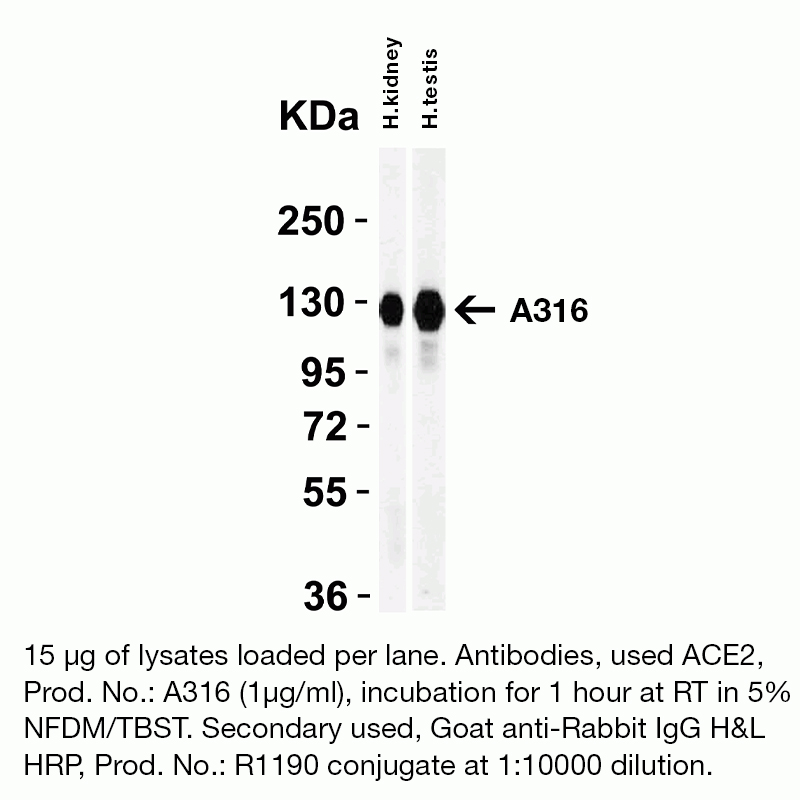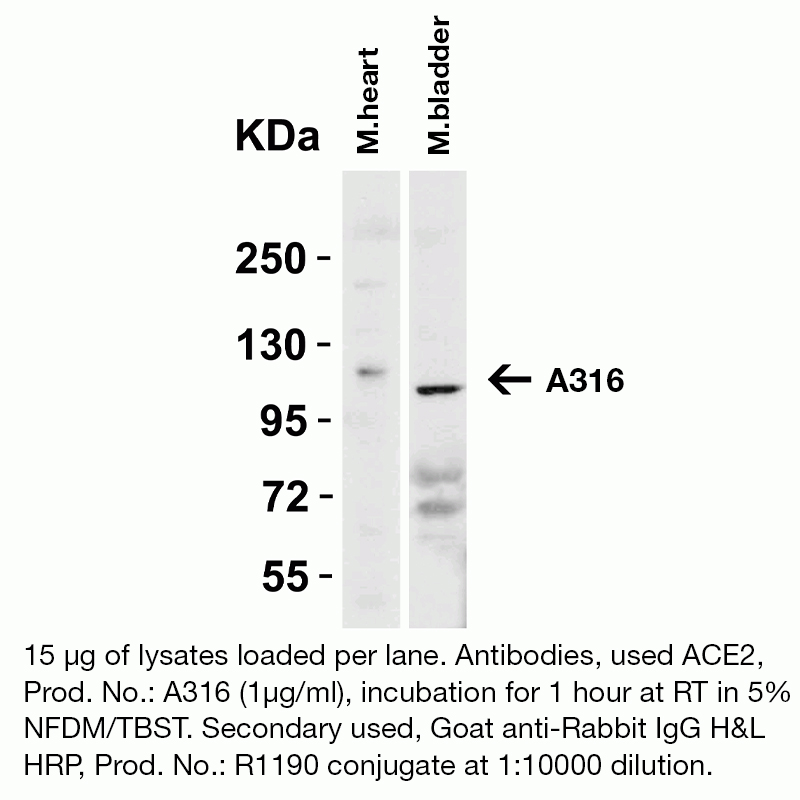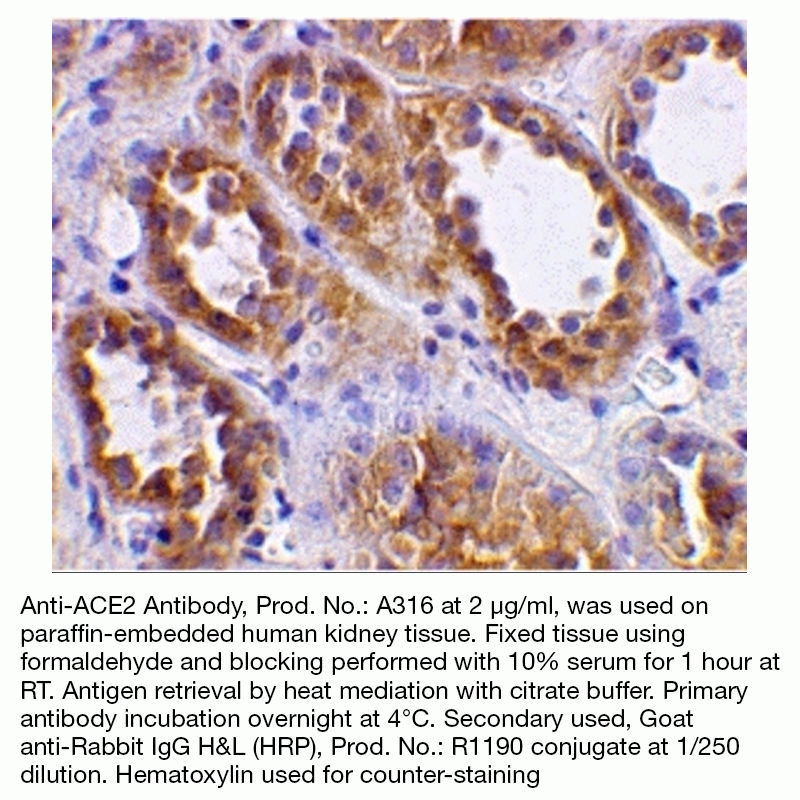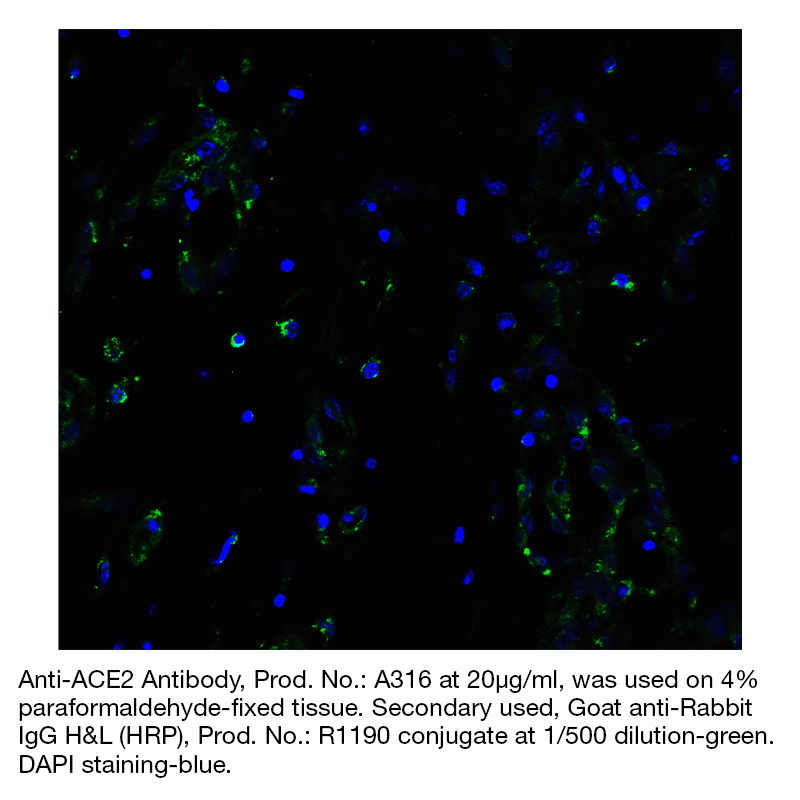Anti-ACE2 (NT)
Anti-ACE2 (NT)
Product No.: A316
- -
- -
Target ACE2 Product Type Polyclonal Antibody Alternate Names ACEH, Angiotensin-converting enzyme 2, ACE-related carboxypeptidase, ACEH, SARS-CoV receptor, SARS-CoV-2 receptor Isotype IgG Applications ELISA , IF , IHC FFPE , WB |
Data
- -
- -
Antibody DetailsProduct DetailsReactive Species Human ⋅ Mouse ⋅ Rat Host Species Rabbit Immunogen Anti-ACE2 antibody was raised against a peptide corresponding to 14 amino acids near the amino terminus of human ACE2. The immunogen is located within the first 50 amino acids of ACE2. Product Concentration 1.0 mg/ml Formulation This polyclonal antibody is formulated in phosphate buffered saline (PBS) pH 7.4 containing 0.02% sodium azide as a preservative. Storage and Handling This polyclonal antibody is stable for at least one week when stored at 2-8°C. For long term storage, aliquot in working volumes without diluting and store at –20°C in a manual defrost freezer. Avoid Repeated Freeze Thaw Cycles. Country of Origin USA Shipping Next Day Ambient RRIDAB_2828100 Applications and Recommended Usage? Quality Tested by Leinco WB ACE2 antibody can be used for the detection of ACE2 by Western blot at 1 μg/mL. ELISA IF IHC FFPE Each investigator should determine their own optimal working dilution for specific applications. See directions on lot specific datasheets, as information may periodically change. DescriptionDescriptionSpecificity Rabbit Anti-Human Angiotensin-Converting Enzyme 2 (ACE2) recognizes an epitope near the N-terminus of Human ACE2. This polyclonal antibody was purified using affinity chromatography. Background Angiotensin I converting enzyme 2 (ACE2) is an exopeptidase that catalyses the conversion of angiotensin I to the nonapeptide angiotensin, or the conversion of angiotensin II to angiotensin. ACE 2 has direct effects on cardiac function, and is expressed predominantly in vascular endothelial cells of the heart and the kidneys. ACE2 plays a regulatory role in lung pathophysiology, including pulmonary fibrosis and acute lung disease. Activation of ACE2 by a small molecule can be a therapeutically relevant approach for treating and controlling Pulmonary Hypertension (PH). ACE2 may also have clinical potential as a novel molecular target for the treatment of pancreatic ductal adenocarcinoma (PDAC). PubMed Research Area COVID-19 . Viral References & Citations1. Acton, S. et al. (2000) Circ Res. 87: E1 2. Gamliel-Lazarovich, A. et al. (2007) Cardiovasc Res. 73: 463 3. Nabel, EG. et al. (2000) N Engl J Med. 347: 1795 4. Raizada, MK. et al. (2009) Am J Respir Crit Care Med. 179(11):1048-54. 5. Yuan, Y. et al. (2009) Tohoku J Exp Med. 217: 123 Technical ProtocolsCertificate of Analysis |
Related Products
- -
- -
Prod No. | Description |
|---|---|
A314 | |
A313 | |
A315 | |
A316 |






